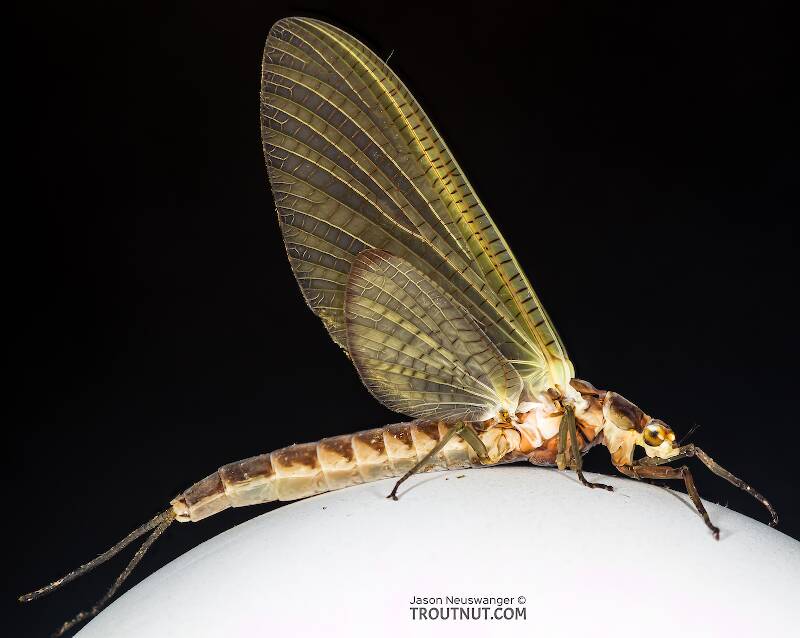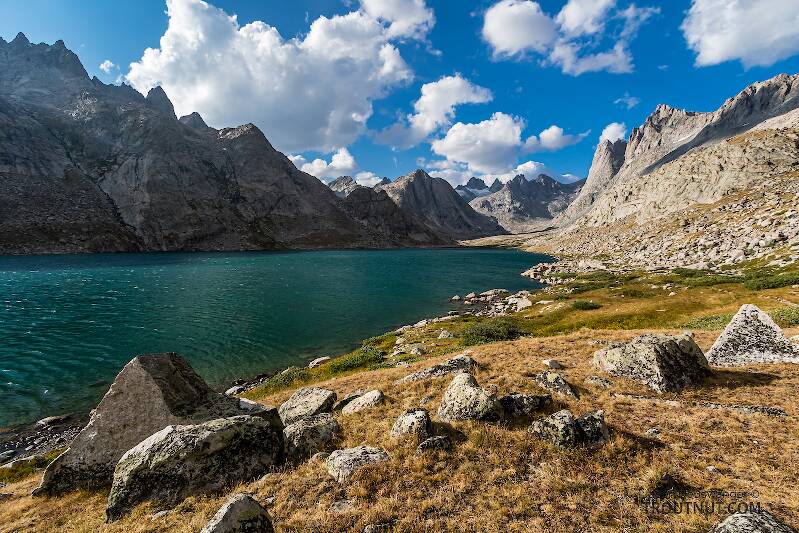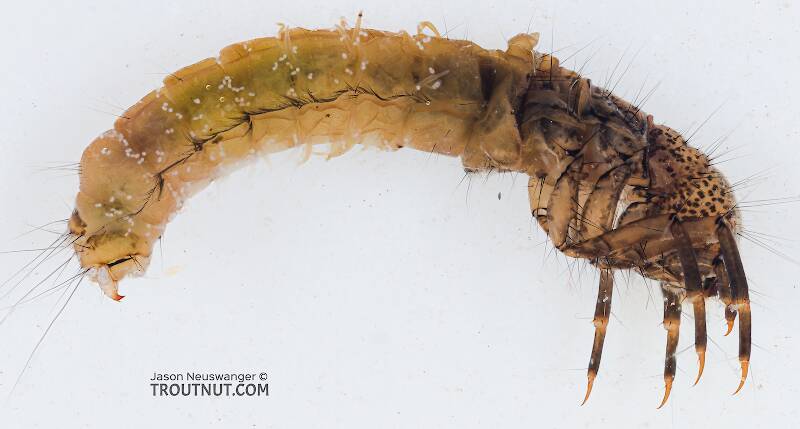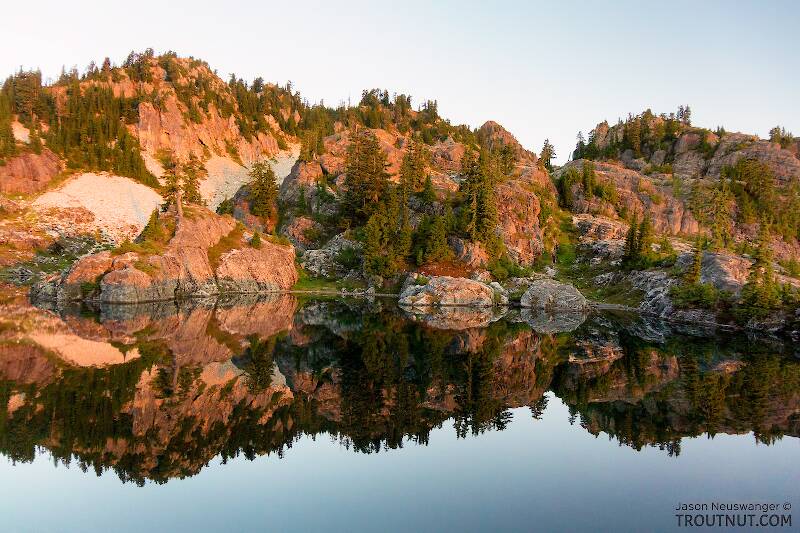The weather was perfect to complement the scenery and the fish, although it enhanced the scenery so much that I spent too much time with my camera and not enough trying to catch fish.
Under the bright morning sun, the fish weren't rising. I had to ply the depths with small streamers, and strikes came few and far between but finally dredged up a few beautiful little trout.
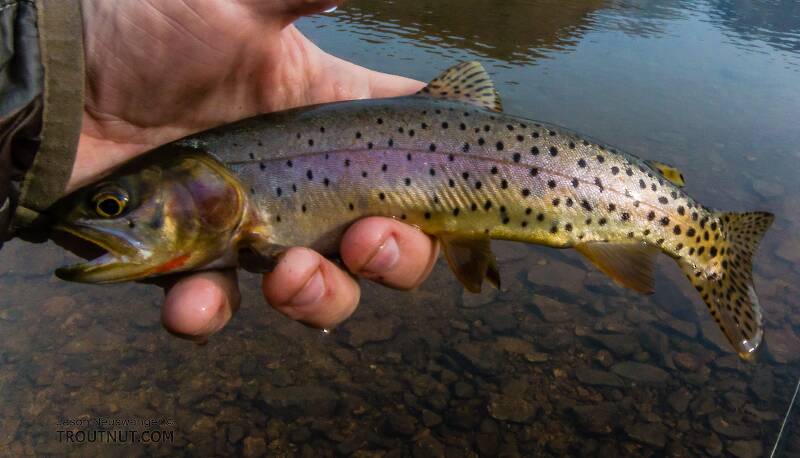
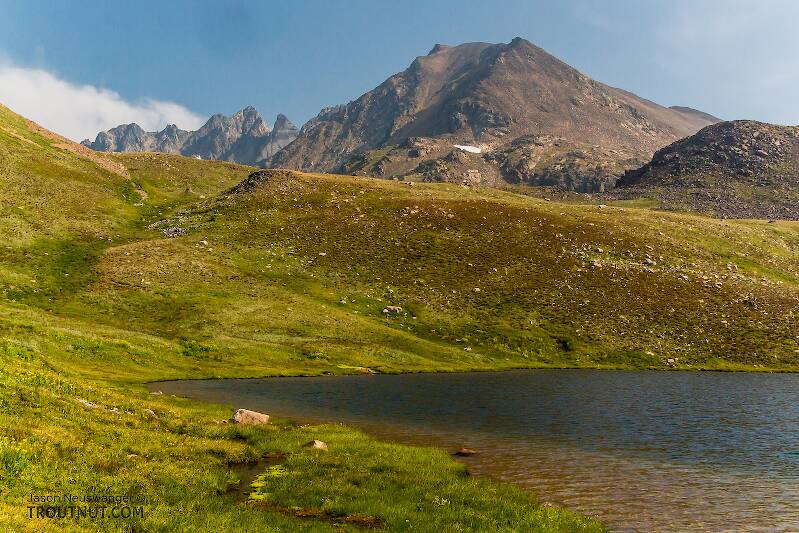
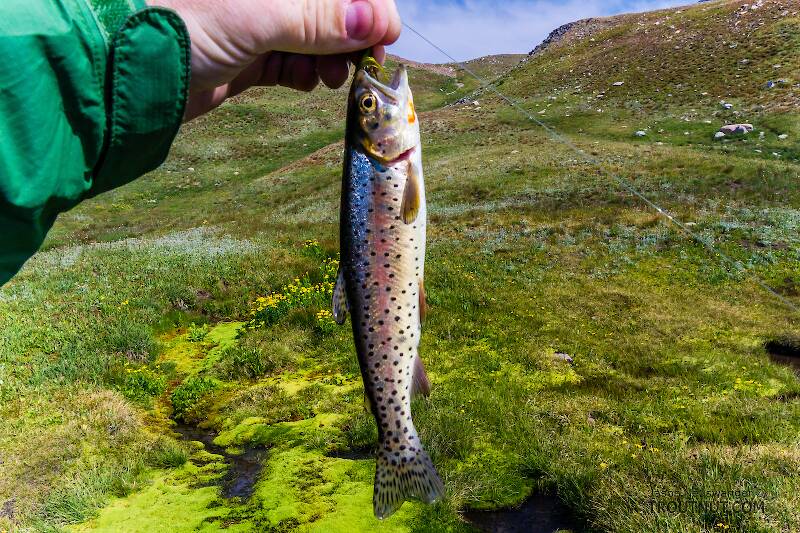
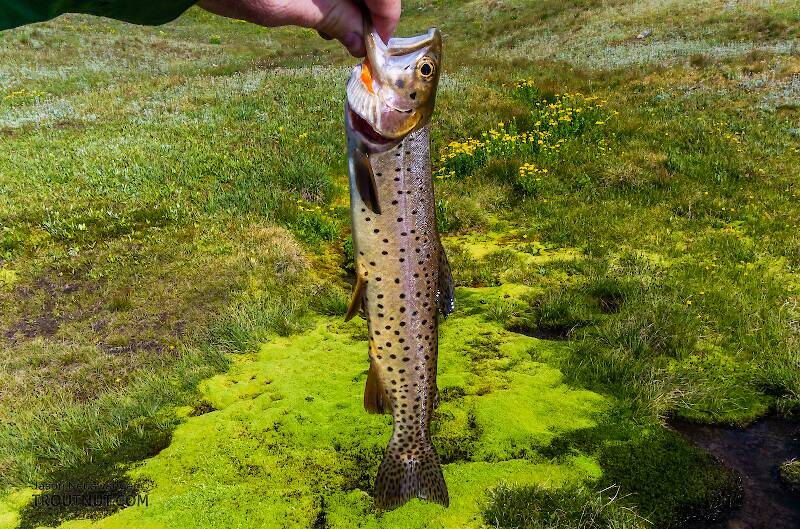
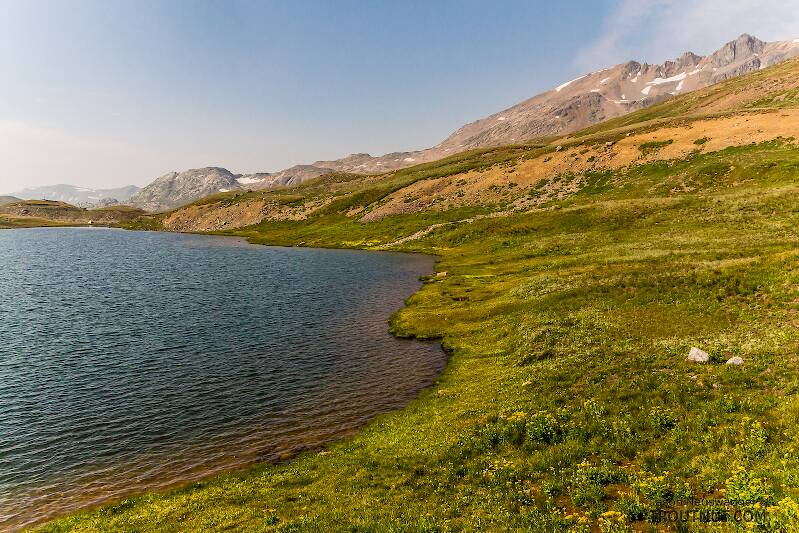
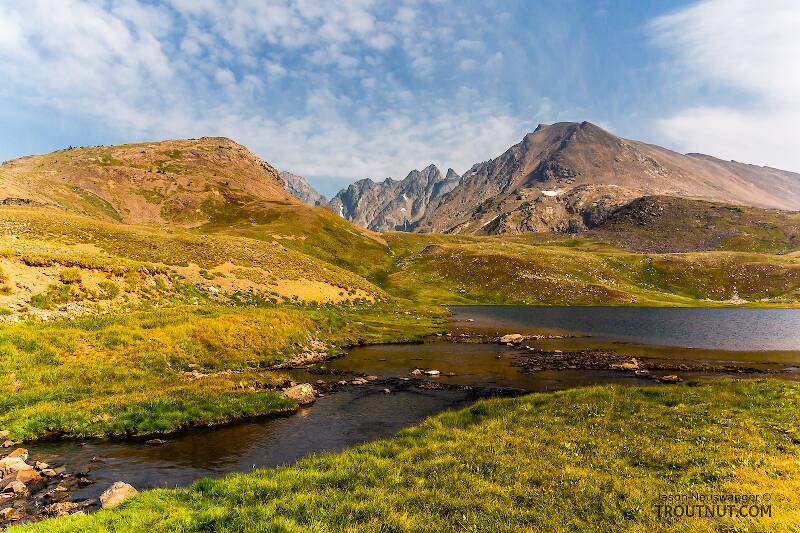
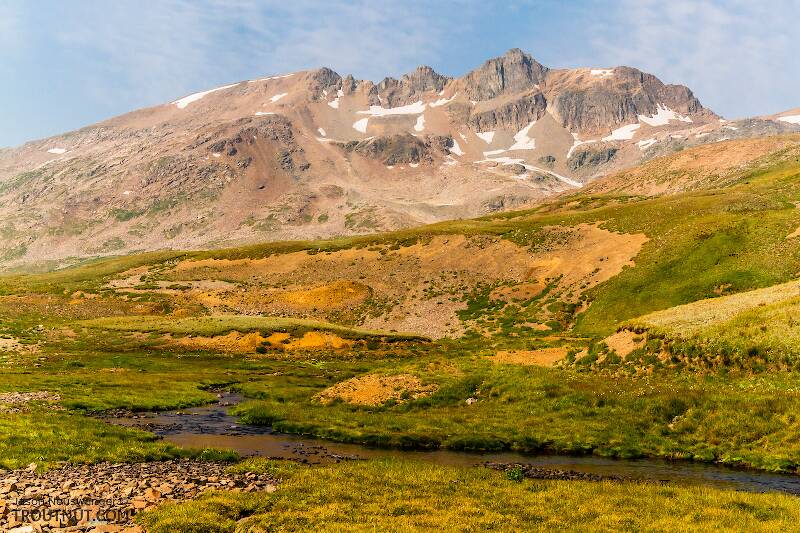
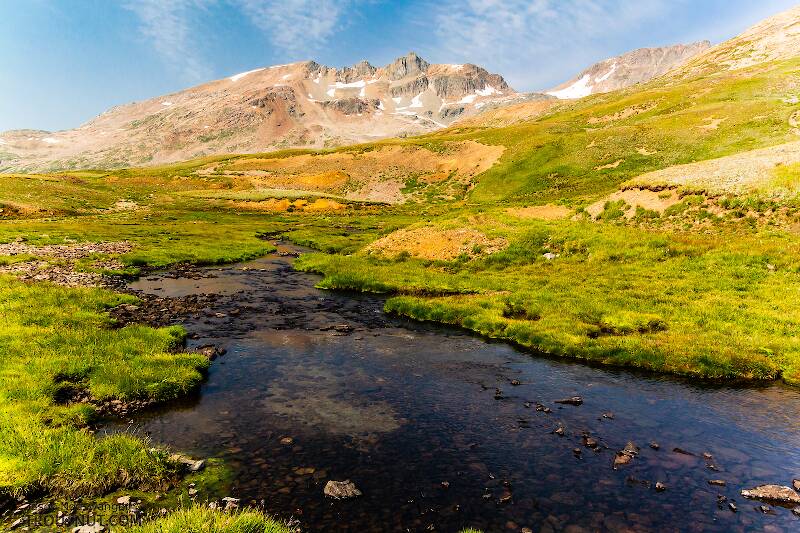
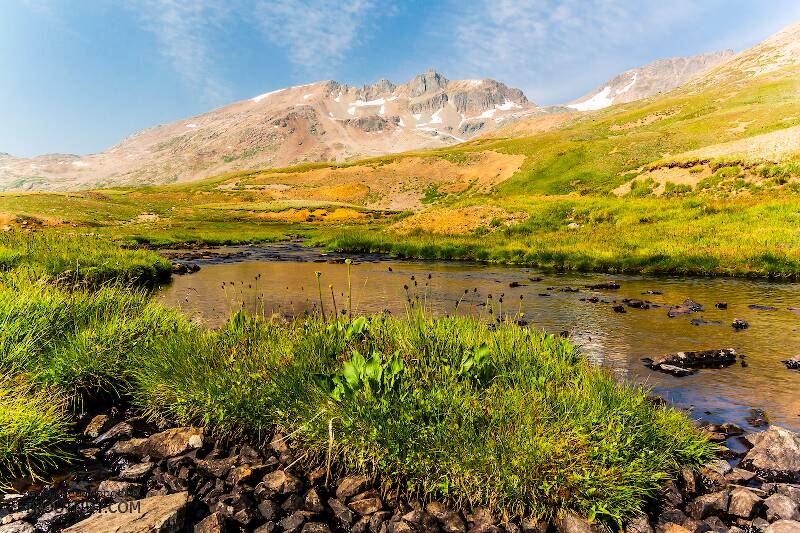
Here's the view from camp, just before packing up the tent:
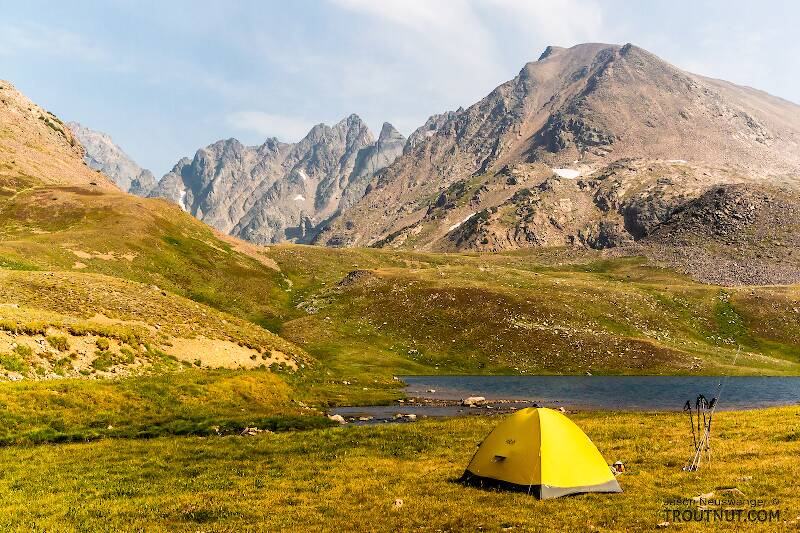

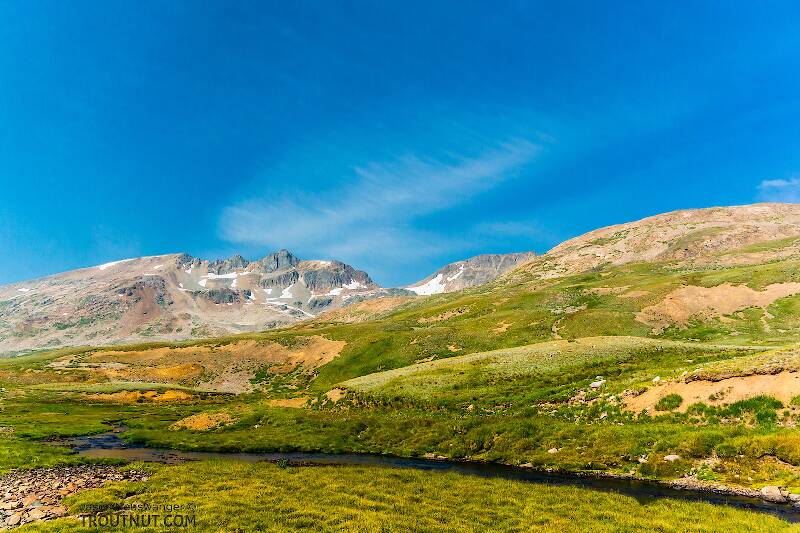
The route beyond gave us a bird's eye view of the lake where we'd camped:
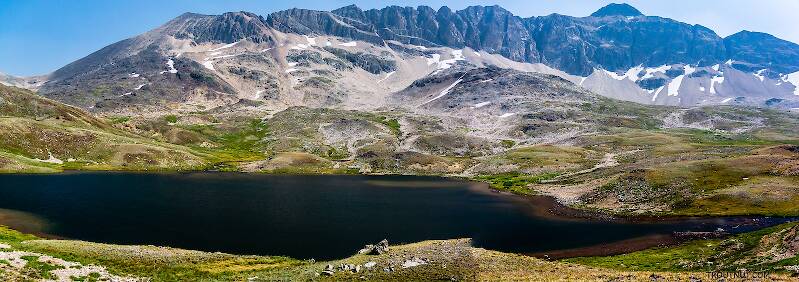
It led to a high, rocky pass with fantastic panoramic views, which I briefly photographed before we descended to get out of the raging wind that howls through such constrictions even on the nicest days.


Beyond the rocky passes, after Lena bravely navigated some gnarly talus fields with an already-twisted ankle, we came to a beautiful little fishless headwater stream that led through a meadow of mountain wildflowers.
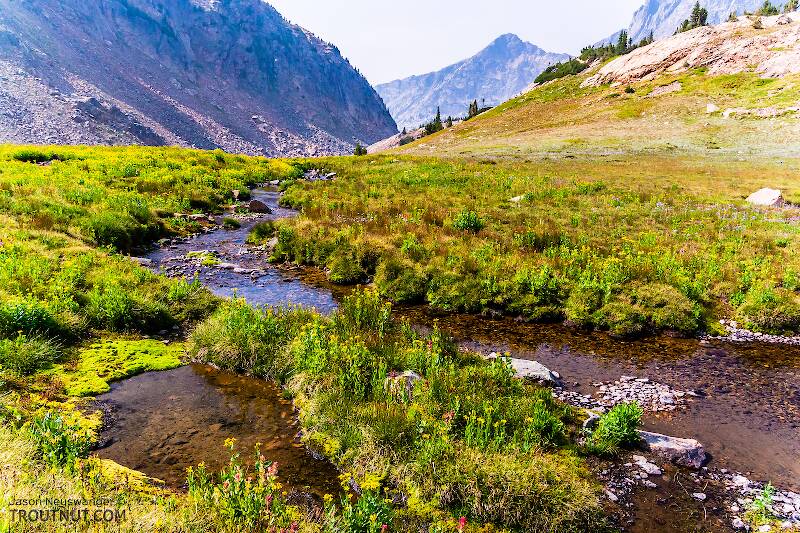
Finally, the lake I sought for Golden Trout appeared in all its alpine glory.
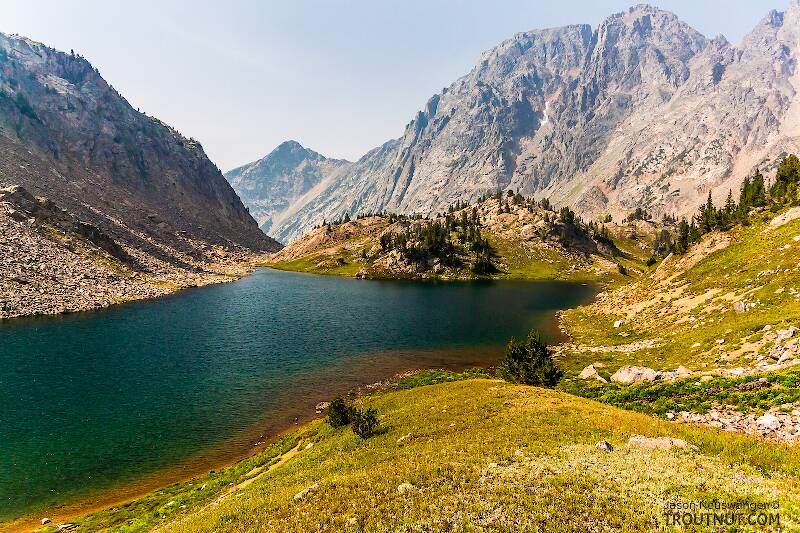
My first job was to pitch a comfortable camp with one of the best views I've ever had from a tent. As I write this, I realize how lucky I've been to need the words "one of" in the previous sentence.
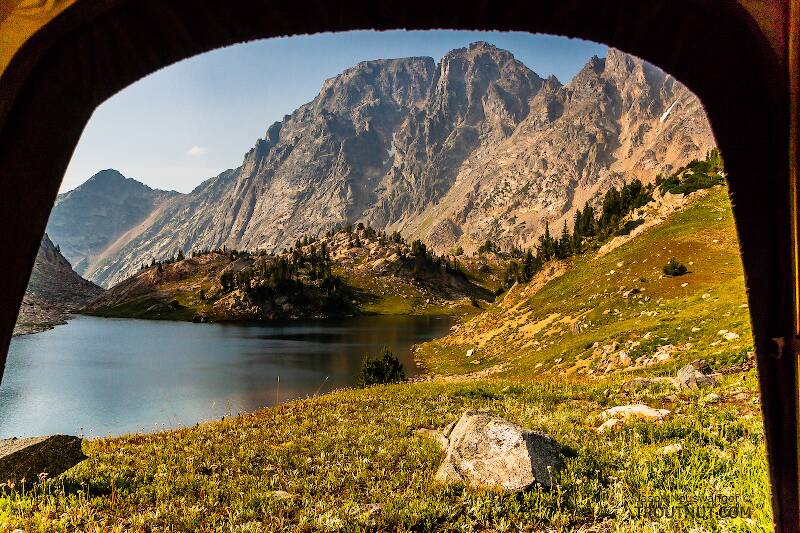
As the evening sun slowly descended, it painted the mountain in ever-more-stunning colors.
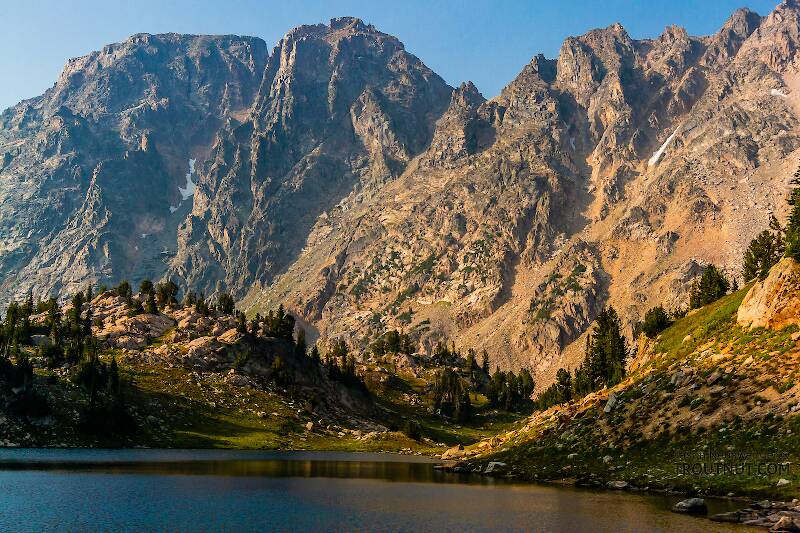
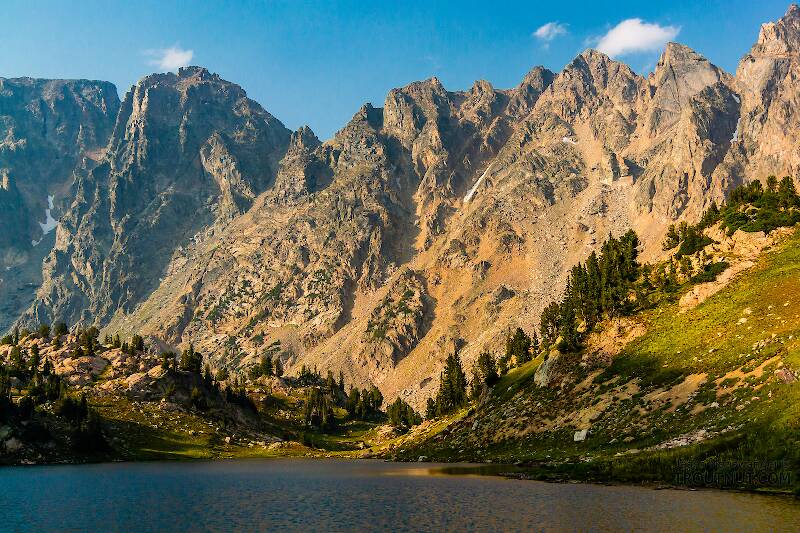
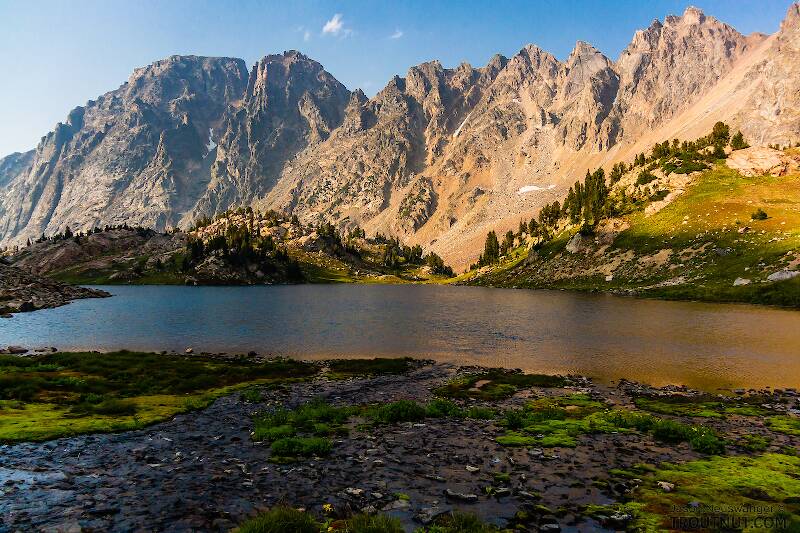
I had wasted no time after pitching camp to head down to the water. Below our tent was a trickling inlet, where a shallow shelf quickly dropped off the edge into unknown depths. Many fish were rising. Remembering one of the lessons of my previous pursuit of this species--Golden Trout are very wary--I crawled slowly and low-to-the-ground into suitable casting distance. The first few risers near my casts ignored my fly, but fairly quickly I hooked up and landed my first Golden Trout of the trip.
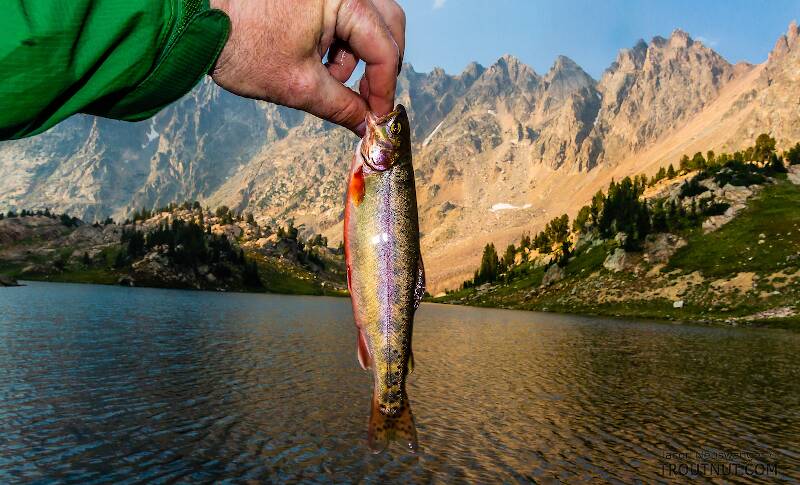
After that, the fishing got simultaneously more promising and maddeningly frustrating. The wind would pick up and put the fish down for a few minutes, then calm and the surface in front of me was covered with rises--some of them clearly from nice-sized fish. A school of dozens of Golden Trout were feeding right in front of me, seemingly oblivious to my presence and movement. The pleasure of being in a place like that, among trout like that, continually massaged the back of my mind even as my conscious thoughts turned desperately toward figuring out how to catch the damn fish.
Nobody ever tells you that a high-country Golden Trout that rarely sees a fly can be as picky as the wariest tailwater Brown. I could have easily imagined it if I took to heart my own research that suggests selectivity is more about the abundance of prey than pressure and education. But I could not have imagined that a large group of large Goldens would gather at an inlet to feed on these:
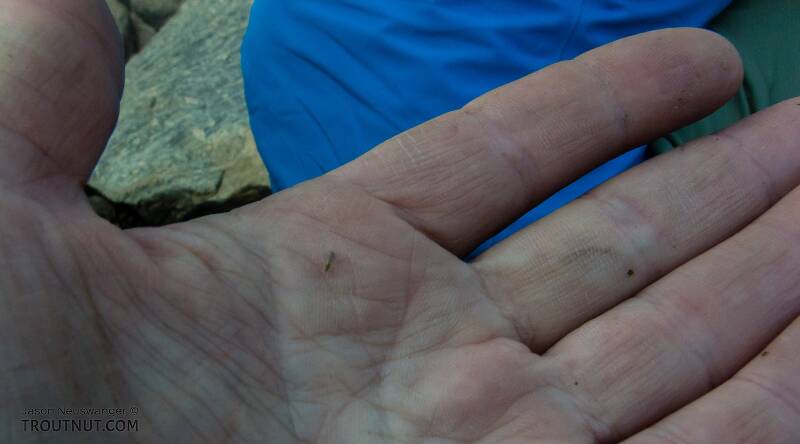
I won't blame the reader if you have to zoom in to even see the bug. I measured the lines on my hand with a caliper to compare to the photo -- that midge is 3 mm long. It would fit a standard hook size 28. These Golden Trout were ravenously sipping their emerging pupae from just below the surface and barely acknowledging the presence of anything else. I managed a few splashy refusals or missed hook-ups on half-sunken Tricos and whatever other monstrosities from my unprepared fly box could be improvised to look slightly like their prey, but the more common event witnessed over and over and over was to watch a fish sip a natural within a few inches of my fly.
Where are the books that say to bring size 28 midge pupa imitations into high alpine lakes? If anybody knows of one, email me and I'll buy it on the spot. Whoever wrote it must know some other things I don't. I have since found Gary LaFontaine's Fly Fishing the Mountain Lakes to be every bit as unique and insightful as his other books, but even that one didn't prepare me for these fish.
I didn't catch one more. I have never been so thoroughly defeated by selective fish. I would have kept flogging the water until I could barely see, but Lena was cold and hungry and wanted to return to the tent just 50 yards uphill, and for some reason she didn't want to go alone. By "some reason," I mean this:
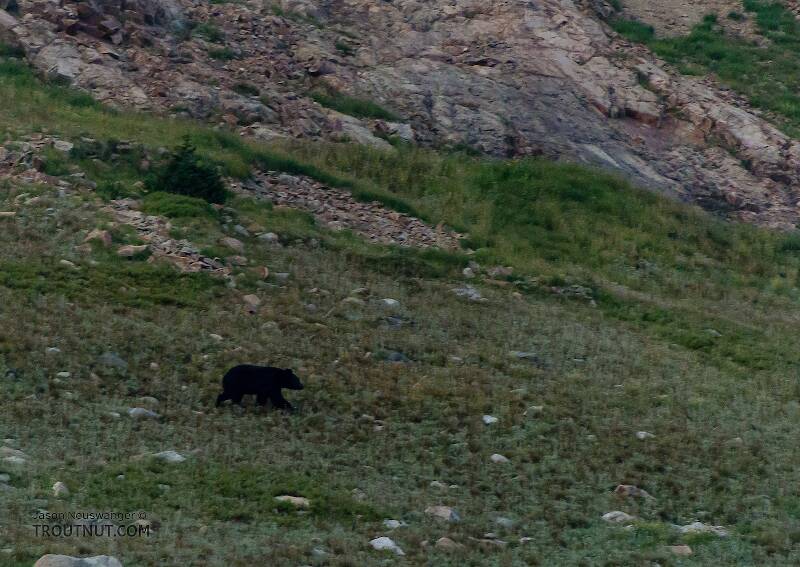
Up to this point, I had directed a fair portion of the trip's conversation toward the lack of bears, lack of bear tracks, lack of bear scat, lack of tasty wildlife or berries for bears to eat, and generally low likelihood that a bear was going to come along and try to eat us. I had made a sufficiently convincing case to win permission to fish by myself again in the morning as Lena slept in, and then this big black furball came ambling along on the far bank the lake, passing within 50 yards of our tent.
I shouted all the usual things at the bear to let it know that we are not food, and neither is our food (no offense to Mountain House -- it's just what the bear needed to hear). Like almost every other bear I've encountered, it didn't care one way or the other about my presence. It had more important things to do, none of which involved some nut yelling at it from across a lake. I would be flattering myself to take credit when it seemed to pick up its pace, changing gaits from a lazy saunter to a casual saunter on its way up out of our valley.
Unfortunately, not even a signed non-mauling contract with this bear would have won back my permission to stray more than a few yards from the tent with Lena asleep inside. There were now unseen, hungrier bears behind every rock and bush, and it was time to stop fishing for the night.

